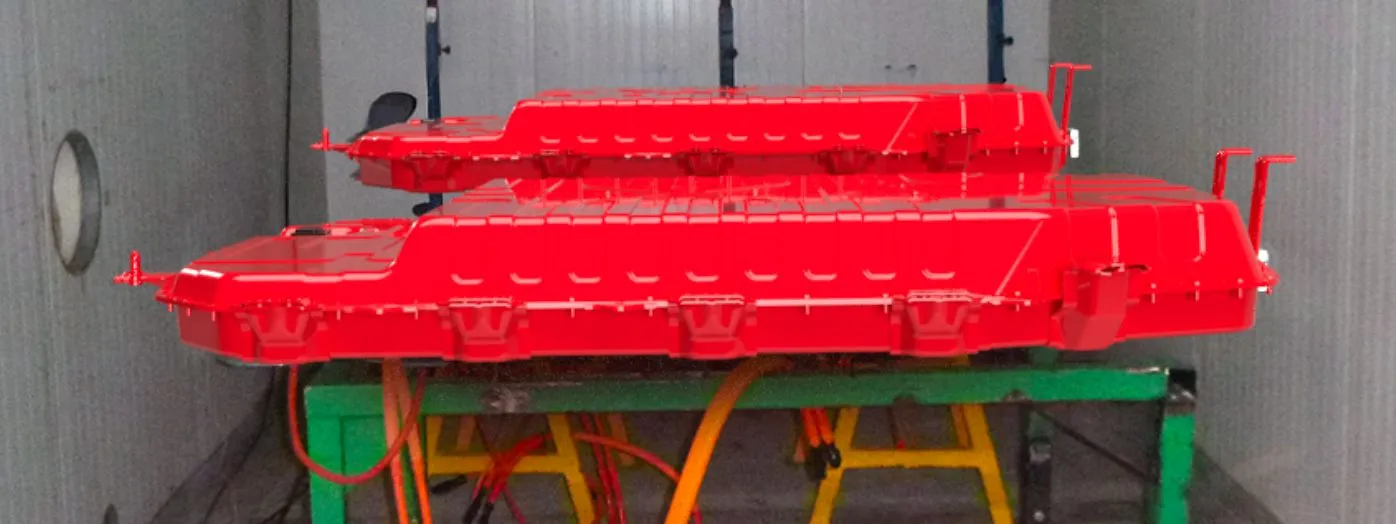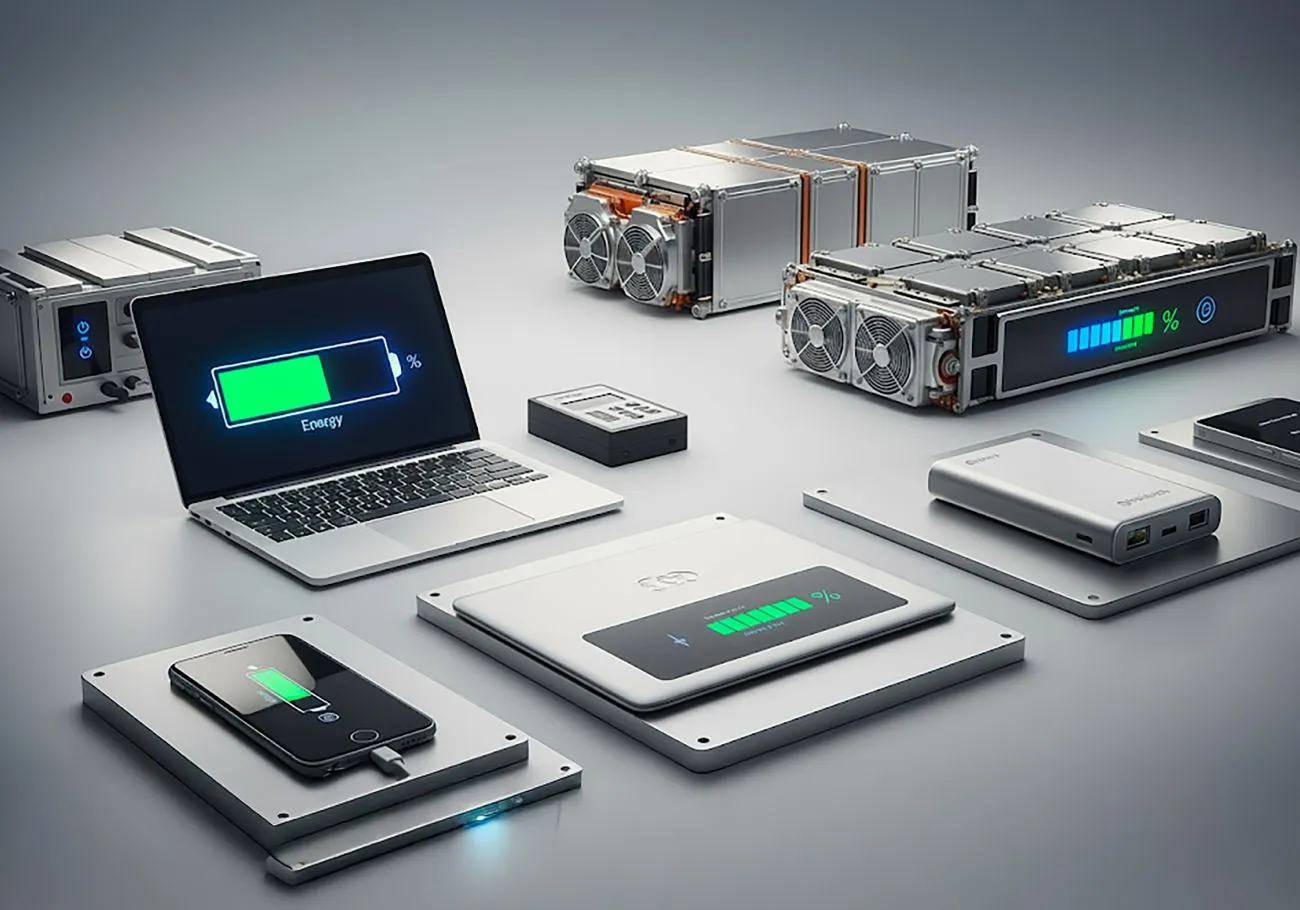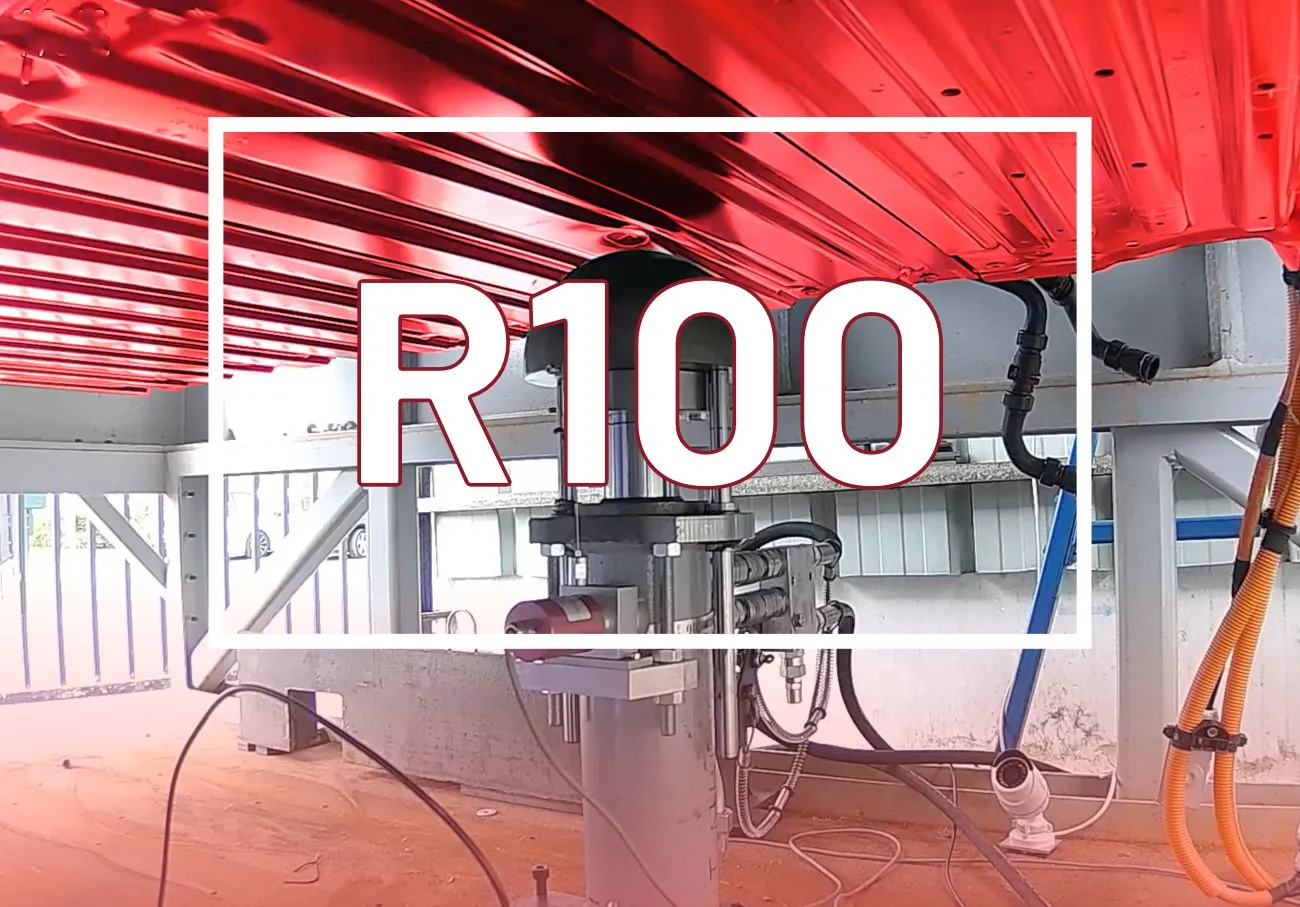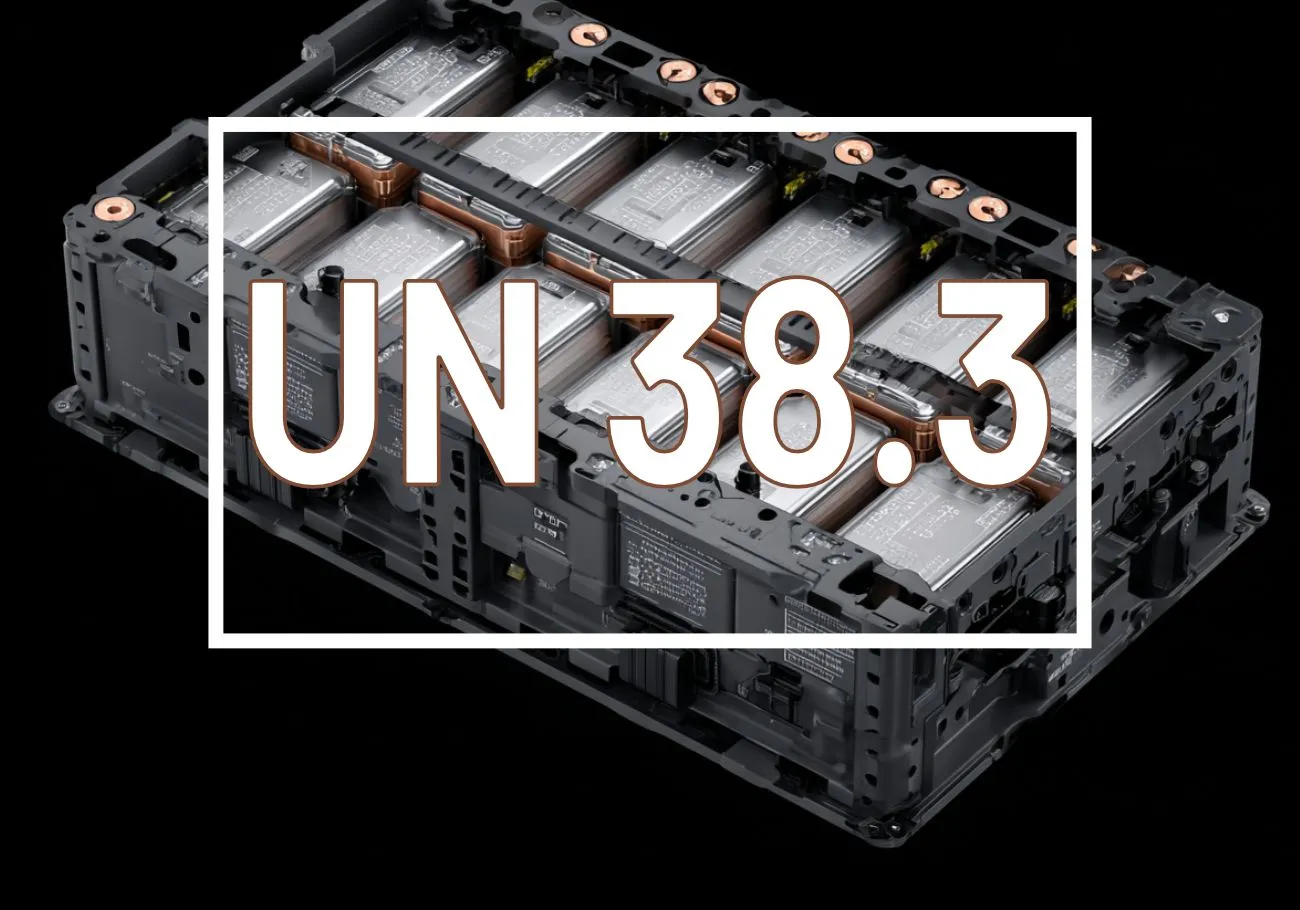Environmental testing for batteries, modules and cells
Validate the robustness of your batteries under extreme and multi-physical conditions
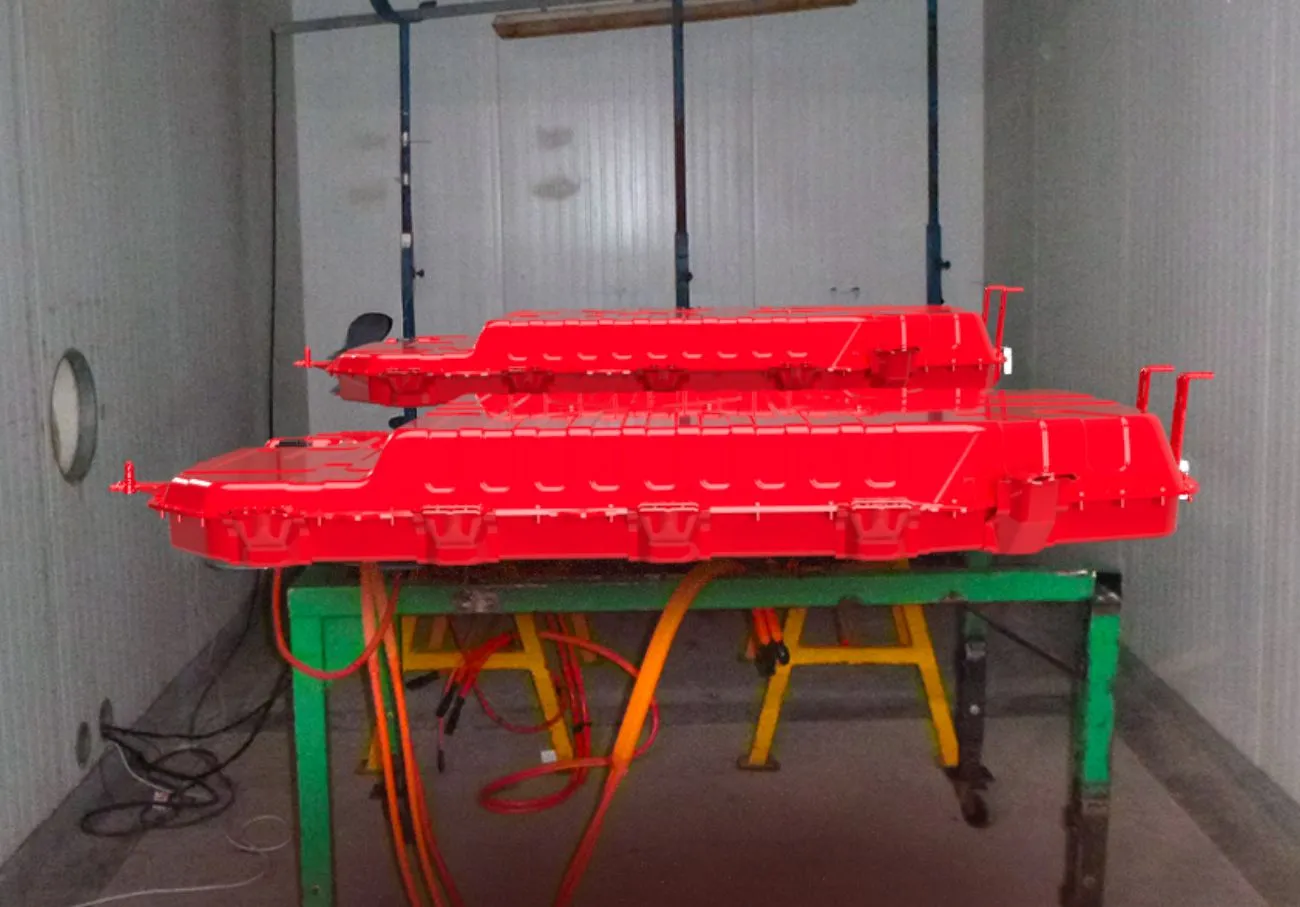
Why carry out environmental testing?
- Abrupt thermal variations (freezing/thawing, hot engine, air conditioning, etc.)
- Constant or cyclical humidity (tropical zones, condensation)
- Accidental immersion, water splashes, dust in industrial environments
- Salty or corrosive atmospheres
- High altitude (aeronautics, transport, mountains)
- Insulation or corrosion faults,
- BMS malfunctions,
- Loss of tightness or chemical degradation,
- Thermal runaway in the event of an uncontrolled reaction.
What are the applications?
Types of environmental tests proposed
Thermal cycling and thermal shocks
- Rapid alternation between extreme temperatures (from -40°C to +90°C)
- Reproduction of engine, climatic or seasonal cycles
- Analysis of the pack's mechanical and electrical resistance
Hygrometric cycling (humidity)
- Relative humidity control from 10% to 95% RH
- Simulation of successive condensation and drying
- Observation of the effects on insulation, housings and connections
Tightness tests - IP Protection Indices
- IPX4 to IPX9K (spray, splash, high-pressure cleaning)
- IP5X and IP6X (ingress of dust or particles)
- Tests in pressure, immersion or contaminated atmosphere
Talk to our experts in environmental testing of batteries
Immersion and corrosion
- Partial or total immersion in water, technical or saline fluids
- Salt spray tests in accordance with ISO 9227
- Observation of damage: oxidation, loss of seal, electrolyte leakage, etc
Altitude (altimeter tests)
- Simulation of reduced pressure up to 11 kPa (≈ 15,000 m)
- Vacuum runaway or deformation test
- Combination with temperature or electrical cycling
What standards and benchmarks are covered?
- UN 38.3 (tests T.1 to T.7)
- ECE R100.3 - traction batteries
- IEC 62660, IEC 62133, ISO 12405
- ISO 20653 (IP), ISO 16750-4 (automotive), MIL-STD-810
- UL 2580, UL 1973
Our dedicated technical resources within the Emitech Group
- Climatic and humidity chambers (-60 °C to +180 °C)
- Combined thermal/humidity/electric cycling systems
- Dust, spray, salt spray and immersion chambers
- Altimeter cells with pressure/temperature control
- Multi-channel acquisition (voltage, current, temperature, humidity, pressure)
Why choose the Emitech Group for your EMC tests?
- Multi-physics expertise: thermal, hygrometric, mechanical, electrical
- Resources adapted to cells, modules and complete packs
- Ability to string together combined and standardised sequences
Needs
Discover a selection of additional resources that explore topics related to this page including regulatory contexts, technical articles, and specific areas of expertise. These materials provide further insight to help you better understand the key challenges and available solutions.
Contact us for a quote
